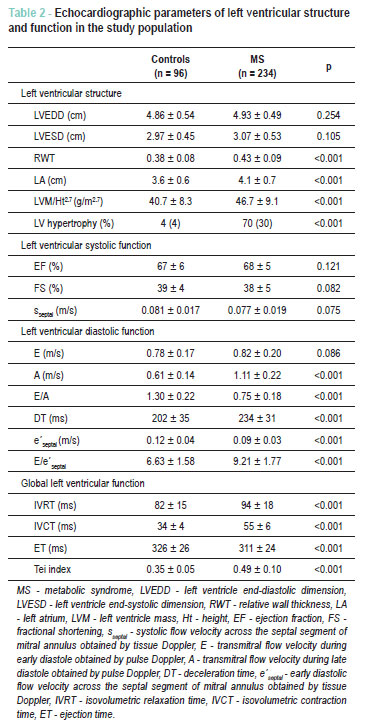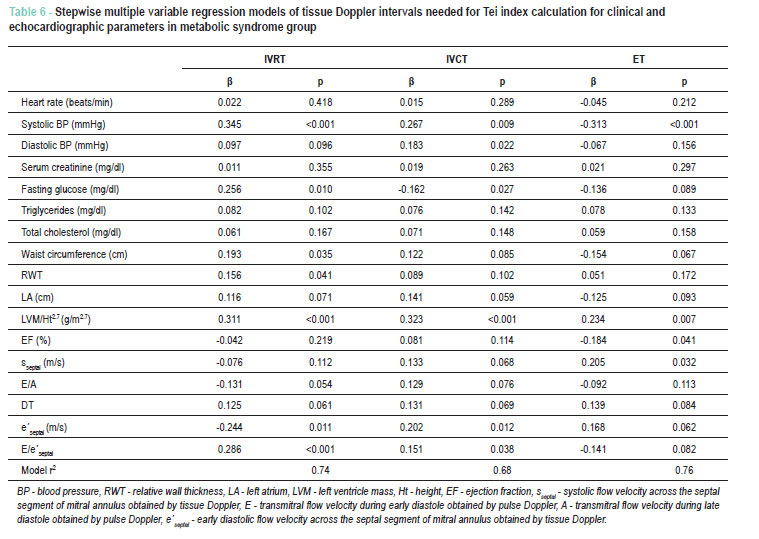BACKGROUND: The metabolic syndrome (MS) represents a cluster of cardiovascular risk factors that act synergistically. OBJECTIVE: The aim of this study was to determine which parameters were independently associated with the global left ventricular (LV) function in subjects with MS estimated with the Tei index. METHODS: The study included 234 subjects with MS and 96 controls adjusted by age. MS was defined by the presence of three or more of ATP- NCEP III criteria. All subjects underwent laboratory blood tests and two-dimensional, pulsed and tissue Doppler echocardiography. Appropriate tissue Doppler time intervals for the estimation of the Tei index were also assessed. RESULTS: The Tei index was increased in subjects with MS (0.35 ± 0.05 vs 0.49 ± 0.10, p < 0.001). Multiple regression analysis of the clinical parameters showed that systolic blood pressure (β= 0.289, p < 0.001), fasting glucose (β= 0.205, p = 0.009), LV mass index (β= 0.301, p < 0.001), E/e'septal (β= 0.267, p < 0.001), and e'septal (β= -0.176, p = 0.011) were independently associated with the global left ventricular function estimated by Tei index. CONCLUSION: MS has a significant impact on LV global function. Systolic blood pressure, fasting glucose, LV mass index, E/e'septal, and e'septal were independently associated with the LV global function.
Ventricular function left; metabolic syndrome; myocardial ischemia; risk factors







